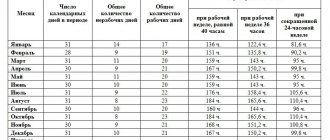The standards for providing jobs to beneficiaries are established at the legislative level. Thus, a quota for disabled people at an enterprise is provided if there are more than one hundred employees on staff.
In addition, a number of powers for the social protection of citizens have been transferred to the constituent entities of the federation. They adopt their own regulations. Consequently, an entrepreneur is obliged to comply not only with the all-Russian law on job quotas for people with disabilities, but also with regional norms. And this leads to the need to organize special work in this direction.
Download for viewing and printing:
Federal Law of November 24, 1995 N 181-FZ On the social protection of disabled people in the Russian Federation
General concept of quotas
Quotas generally mean the reservation of jobs . It is done by creating documents that describe the rules:
- allocation of vacancies in the staff;
- hiring workers in preferential categories;
- providing privileged employees with: special conditions;
- necessary equipment and space to perform duties.
Reservations in production are carried out taking into account:
- norms of current legislation applicable to an economic entity;
- working conditions;
- industries and others.
For accounting in work: compliance with regulatory requirements is strictly checked by regulatory organizations.
Amount of compensation payment
The amount of payments is proposed to be introduced by the laws of regional authorities with the following conditions:
- if the regional cost of living for the working population is higher than the federal one, then compensation is set at the level of the subject’s subsistence level;
- otherwise, the payment is equal to the minimum subsistence level of the Russian Federation.
This procedure will ensure a unified approach to establishing the amount of compensation on the territory of Russia, taking into account the economic characteristics of the regions.
The legislative framework
The norms for mandatory quotas are given in Law No. 181-FZ of November 24, 1995. Thus, the first part of Article 21 states:
“For employers whose number of employees exceeds 100 people, the legislation of the constituent entity of the Russian Federation establishes a quota for hiring disabled people in the amount of 2 to 4 percent of the average number of employees. For employers whose number of employees is no less than 35 people and no more than 100 people, the legislation of a constituent entity of the Russian Federation may establish a quota for hiring disabled people in the amount of no more than 3 percent of the average number of employees.”
Moreover, the obligation to reserve places for the application of forces for citizens with health limitations applies to business entities, regardless of their form of ownership. Thus, an individual entrepreneur or state corporation must provide special working conditions for beneficiaries in their state if the number of employees exceeds 35 people .
The following enterprises are exempt from the mandatory employment of disabled employees:
- public organizations of citizens with disabilities;
- companies with small numbers.
Important: it is prohibited to provide disabled people with jobs of a high danger category.
Data is taken from certification sheets. The interaction between the state and market participants in the field of providing social guarantees to disabled people is described in more detail in Law No. 1032-1 of April 19, 1991. In particular, Article 13 of the act confirms the guarantee for people with physical disabilities to work. And Article 25 obliges entrepreneurs to take part in this work.
Download for viewing and printing:
Law of the Russian Federation of April 19, 1991 N 1032-1 On employment in the Russian Federation
Let's sum it up
Starting from 2021, a pilot project is planned in a number of constituent entities of the Russian Federation:
- A new way has been provided for the employer to fulfill the quota for hiring disabled people - payment of compensation.
- Funds for promoting the employment of people with disabilities will use the funds received to increase the interest of employers and improve the qualifications of job seekers with disabilities.
- The liability of employers will increase significantly.
If the experiment is successfully completed, changes in the field of job quotas for people with disabilities will be applied throughout the Russian Federation.
If you find an error, please select a piece of text and press Ctrl+Enter.
Powers of the regions
Article 20 of Law No. 181-FZ classifies the employment of people with disabilities as the responsibility of the subjects of the federation. Regional authorities are obliged to develop a procedure for conducting special events to provide social guarantees to beneficiaries and organize its implementation by market participants. In this case, the reservation standards can be:
- executed in the amounts specified in Article 21 of the said law;
- increased.
Download for viewing and printing:
Article 20. Providing employment for people with disabilities Federal Law of November 24, 1995 N 181-FZ
Article 21. Establishing a quota for hiring disabled people Federal Law of November 24, 1995 N 181-FZ
In addition, regional executive authorities are required to carry out measures to:
- involvement of people with disabilities in business activities;
- creating conditions for their professional training (retraining);
- stimulating the creation by entrepreneurs of working conditions for people requiring social protection.
For example, enterprises registered in the Kamchatka Territory are subject to the provisions of local law No. 284 of June 11, 2009. The number of quota places in it coincides with the same as provided for by the all-Russian act. The maximum parameters are established by laws:
- Stavropol Territory No. 14-kz dated March 11, 2004;
- Ulyanovsk region No. 41-OZ dated 04/27/09.
Download for viewing and printing:
Law of the Kamchatka Territory of June 11, 2009 N 284 On quotas for jobs in the Kamchatka Territory for certain categories of citizens
Law of the Stavropol Territory of March 11, 2004 N 14-kz On quotas for jobs for people with disabilities
Information on the employment of disabled people in the Employment Service
Employers who, according to Art. 21 of Law No. 181-FZ are required to ensure the employment of disabled people within the established quota; they submit a report on the fulfillment/non-fulfillment of the quota to the Employment Service.
The report is drawn up on a standard form.
The deadline for submitting the report is set by the management of the Employment Service in the region. However, the frequency of reporting cannot be set more than once a month.
As a rule, information on the employment of disabled people is submitted to the Employment Center based on the results of the reporting period, before the 10th day of the month following the reporting period.
General procedure for reserving jobs for people with disabilities
Strict rules regarding the provision of social guarantees to workers with health problems impose serious obligations on entrepreneurs. Their implementation in practice consists of the systematic implementation of several organizational activities. They are:
- Determining the responsibilities of an enterprise (organization) to comply with legal requirements. For this purpose, all-Russian and regional regulations are studied (the list depends on the place of registration of the business entity).
- Calculation of quota norms. You should start from the number of staff (and not the nominal number of employees).
- Creation and approval of local documents.
- Registration of registration with employment authorities.
- Assigning responsibilities for interaction with the Employment Center to the employee. Providing reports and fulfilling obligations.
Hint: the task of implementing the norms of laws No. 181-FZ and No. 1032-1 arises after the number of employees reaches 35 people.
Study of legislative norms
Each enterprise creates a staffing table . The document contains a list of positions and the number of employees occupying these vacancies. According to the form of drawing up the paper, it is necessary to display the final indicators. They make up the staffing level that the legislation is aimed at.
If the result is more than 35 employees, then according to Law No. 181-FZ at least one of them must be a beneficiary. Regional regulations may contain different figures. Consequently, their text should also be carefully studied and implemented.
Hint: the actual number of workers is not a basis for refusing quotas.
Example. The head of Storm LLC approved the following staffing table (excerpt given):
| Job title | Number (persons) |
| Director | 1 |
| Chief Accountant | 1 |
| Accountant | 3 |
| Manager | 3 |
| Worker | 30 |
| Total | 38 |
In fact, the enterprise employs 28 people. 10 positions remain vacant. However, after approval of the structure, the LLC is obliged to immediately comply with the reservation standards.
Attention: regional legislation may link the standards for reserving vacancies for people with disabilities and for young people. For example, such a rule is laid down in Moscow city law No. 90. Download for viewing and printing:
Law of Moscow dated December 22, 2004 N 90 On job quotas
Quota calculation
The next step is to calculate the number of vacancies that need to be provided for persons with physical disabilities.
This is done in accordance with the instructions of Rosstat regarding filling out form No. P-4, approved by Order of the government agency No. 566 dated 01.09.17. Download for viewing and printing: Order of the Federal State Statistics Service dated September 1, 2017 N 566
The formula for determining the number of preferential places is as follows:
- staffing x the norm defined in the acts.
Attention: those for which an increased degree of harmfulness or danger has been established should be immediately excluded from the number of workplaces.
As of 2021, it is not determined what to do if you receive a fractional result. For example, the company has 121 employees. It is necessary to plan 4% of places for people with disabilities. The definition gives the following result:
- 121 people x 0.04 = 4.84
As a rule, general arithmetic rounding rules are used. Although no clarification has been issued on this issue yet.
Preparation of local acts
At enterprises for which compliance with the law on quotas is mandatory, the following documents should be created:
- Regulations on quotas for labor places for citizens of preferential categories. It contains the following data:
- quota sizes and categories of citizens;
- the procedure for implementing measures in this direction;
- responsible official.
- Order on the allocation of vacancies, which must contain specific data:
- about the position provided to a disabled person;
- on necessary changes in the conditions and procedure for carrying out labor duties;
- about the person responsible for execution.
Important: The procedure contains principles for organizing work, and the order provides information about the specific responsible employee.
Download for viewing and printing: Regulations on quotas for labor places
Sample order on the allocation of jobs for disabled people
As a rule, in large organizations, the personnel department is responsible for providing social guarantees to people with disabilities. Therefore, responsibility rests with the head of the department. He, in turn, can issue an act on the redistribution of responsibilities.
Registration with employment authorities
The next stage is to establish official interaction with the Employment Center (EC). To do this you need to take the following steps:
- Study the by-laws at the regional level that describe the procedure for submitting an application.
- Collect a package of documents.
- Submit them to the central office at the place of registration of the enterprise.
- Receive written notification of the completion of the registration process with the Central Planning Commission as an enterprise that meets the quota conditions.
Hint: the response from the government agency will contain the registration number . It is necessary for verification of the subject (indicated in reports).
Interaction with the Employment Center
In order to comply with Article 25 of Law No. 1032-1, companies are required to submit monthly reports to the Central Bank. Starting from 2021, reporting is submitted according to the form contained in Appendix No. 9 to Rosstat Order No. 566 dated 01.09.17. The form contains the following information:
- about the number of vacancies;
- on the number of places allocated to beneficiaries;
- about hired employees, including disabled people;
- on approved local acts relating to quotas;
- on the implementation of quota legislation.
Download for viewing and printing:
Article 25. Assistance of employers in ensuring employment of the population Law of the Russian Federation of April 19, 1991 N 1032-1
Appendix No. 9 to Rosstat Order No. 566 dated 01.09.17
Hint: business entities are required to submit reports of similar content to the statistical authorities (Form No. P-4). Only small entrepreneurs are exempt.
What is a hiring quota?
Before delving into the rules for quotas for jobs, it is advisable to understand what a quota is from the point of view of labor legislation.
A quota is a minimum permissible number of jobs stipulated by law that the employer is obliged to allocate for the employment of certain categories of employees. It can be mandatory (for disabled people) or limited (for foreigners)
Typically, the number of quotas depends on the specifics of production, conditions and nature of the work. Expressed as a percentage of the average number of workers of a particular enterprise.
A quota for disabled people is mandatory in companies with more than 35 employees. If an enterprise is founded by disabled people, it is exempt from quotas. The specific sizes of quotas (within the limits determined by the legislator) are given the right to establish at the regional level.
It is important to take into account the following nuances:
- the number of jobs for disabled people is calculated based on the average composition of the company;
- the quota is implemented in the form of introducing staff positions for people with disabilities into the company’s staffing table;
- quantity is important here, not quality;
- Employees working in hazardous or hazardous areas of production are deducted from the average number;
- if the total number of employees does not exceed 35 people, quotas are not applied.
Remember, a labor quota is a minimum guarantee of the number of full-time positions for people with disabilities in a particular company. An employer does not have the right to refuse to employ a disabled person if he has a vacancy for such an employee on his staff.
Legislative regulation
The right of citizens to work and earn money, regardless of their physical capabilities and disability, is guaranteed:
- Constitution of the Russian Federation;
- Labor Code of the Russian Federation;
- special laws (in particular 181-FZ, 421-FZ), government regulations (for example, No. 30 of 05.18.09) and other regulations.
At the legislative and regulatory level, not only the general principles of establishing quotas are regulated, but also the clear size of quotas in relation to a specific enterprise. By-laws define methods and procedures for the widespread implementation of norms determined by law.
The general range of quotas for disabled people is determined by Art. 21 Labor Code of the Russian Federation. It has been established that for enterprises with more than 100 employees, the proportion of disabled people should be from 2 to 4%. It should be noted that employers face substantial fines for violating this rule. Therefore, some companies specifically create and do not fill vacant positions for people with disabilities (except for cases of employing people with disabilities in such positions).
Remember, when calculating the required number of jobs for disabled people, places associated with harmful or dangerous working conditions are excluded.
Realization of the rights of persons with disabilities
The main category of workers for whom quotas are guaranteed are people with disabilities . Moreover, this guarantee is provided to them at the federal level.
Applicants can contact the employer either independently or after receiving a referral from the employment center. In the first case, to confirm their status they must provide certain documents, namely:
- a medical and social examination certificate indicating the disability group;
- individual rehabilitation program for a disabled person.
Without these documents, it can be difficult for an employer to determine whether an applicant belongs to a preferential category, so he is not obliged to employ him in a quota position. If disability is confirmed and the disabled person is hired, the procedure for applying for a job is no different from general cases.
A referral from the employment center is also possible, since the employer is required to provide a monthly report there on the availability of available places and the fulfillment of the quota. In this case, in order to receive a referral, the disabled person must first register as unemployed.
The employer must also comply with other legislative guarantees provided for such employees: install special equipment, organize shorter working hours, provide additional free leave, etc.
What does a vacancy under a quota for disabled people mean?
The concept of quotas should be considered from different points of view. This implies the creation of a vacancy and direct adaptation of the workplace. Since the employer is obliged to act based on the specific rehabilitation recommendations of such citizens, the initial equipment of such places is completely impossible.
Responsibility for failure to comply with legal requirements
The employer's activities in providing jobs to persons belonging to preferential categories are controlled by the Rostrudinspektsiya. Moreover, at the local level, the implementation of both all-Russian and regional standards and compliance with the rules of the corresponding level are checked. The government agency carries out planned and unscheduled activities.
In addition, he is obliged to respond to citizens’ requests related to violations of labor guarantees. Responsibility for violation of federal acts is provided for in the articles of the Code of Administrative Offenses (CAO). So. Violation of the deadlines for the provision of primary statistical reporting is punishable under Article 13.19. Its text contains information about penalties imposed on:
- officials in the amount of 10 to 20 thousand rubles;
- for organizations - from 20 to 70 thousand rubles.
Identification of a repeated violation will lead to an increase in punishment:
- officials are subject to a fine of 30 to 50 thousand rubles;
- legal entity - from 100 to 150 thousand rubles.
And Article 5.42 of the Code of Administrative Offenses regulates the punishment for refusal to employ a person with a disability in the amount of 5 to 10 thousand rubles. A sanction is imposed on the guilty official.
Download for viewing and printing:
Article 13.19. Failure to provide primary statistical data Code of the Russian Federation on Administrative Offenses
Article 5.42. Violation of the rights of persons with disabilities in the field of employment and employment Code of the Russian Federation on Administrative Offenses
Hint: the regional regulatory framework may contain other measures of influence on violators.
Benefits provided
When hiring a disabled person, the employer must comply with a number of conditions. These include:
- Arrangement of the workplace in such a way that a “special” employee can perform his duties without experiencing discomfort.
- For disabled people of the first and second groups, a special working week is established. It should not be more than 35 hours each week. This is directly stated in Article 92 of the Labor Code and Article 23 of Federal Law No. 181-FZ.
- The paid leave allocated every year leaves at least 30 days for disabled people (this is two days longer than the standard leave regime).
- If such an application is received from an employee with a disability, the boss does not have the right to refuse him leave without pay. The maximum number of calendar days of such vacations is up to 60 per year.
- Separately, a signature is taken from an employee with a disability stating that he is familiar with his rights regarding working at night, overtime, working on weekends and holidays. A disabled employee has the right to refuse this type of work altogether without losing his job.
In principle, the requirements are not very strict.
In addition, the employer’s responsibility is only to create these same jobs for people with disabilities and inform the employment center about their availability. It is not the employer's responsibility to specifically search for employees with such parameters.
So the absence of disabled workers in vacant positions will not be a violation of the law. This is confirmed by judicial practice regarding such issues.
The employment center usually receives the following information from the organization:
- How many places are allocated for people with disabilities?
- How many of them are free and available for employment?
- Links to local acts describing these positions, as well as information on how much the quota has been met.
The order on quotas for jobs for people with disabilities will in this case be the employer’s insurance, which will minimize the possibility of him incurring administrative liability in the form of a fine.
In addition to this order, the organization must have a local regulation indicating that employees with disabilities enjoy the required benefits.









